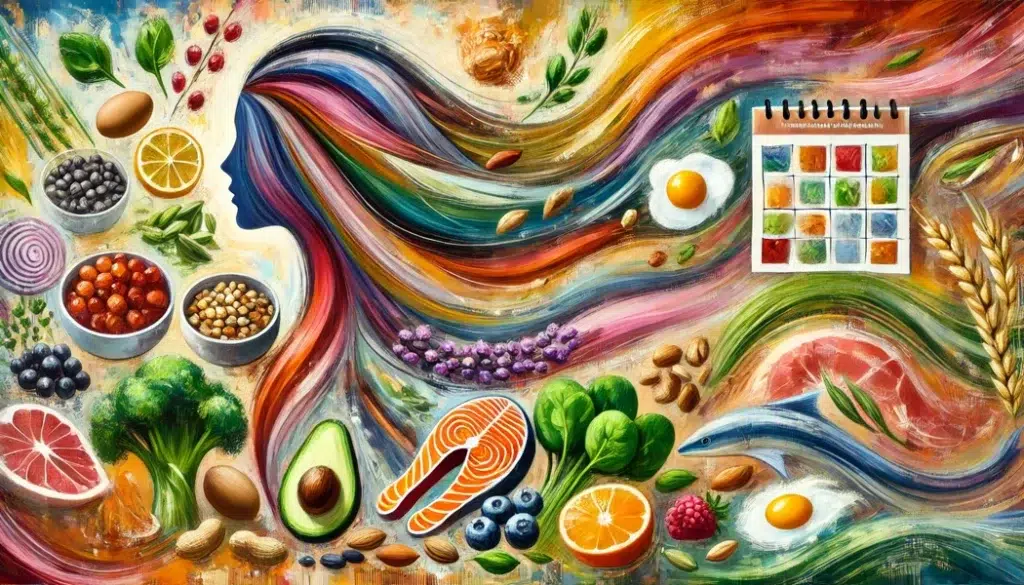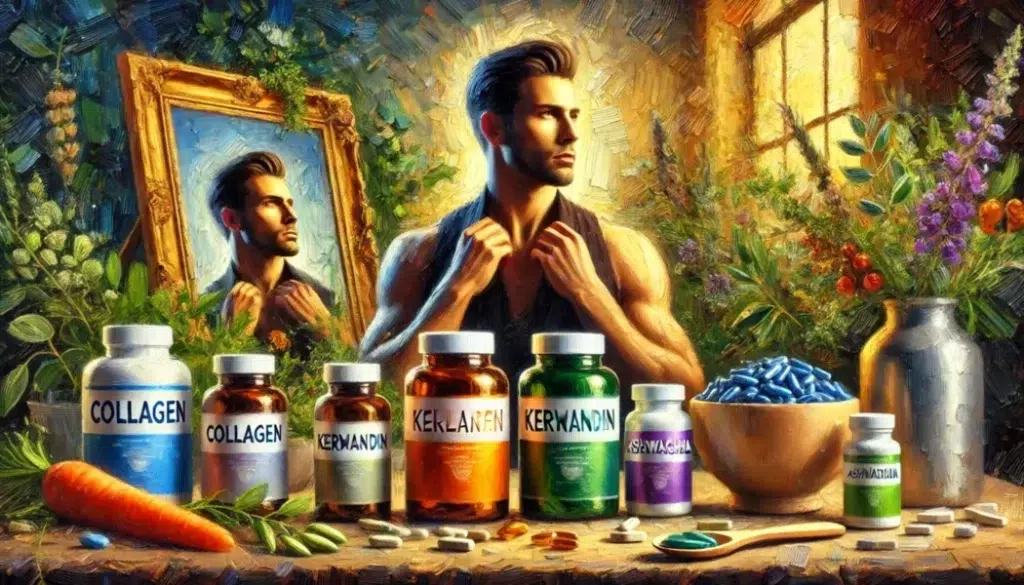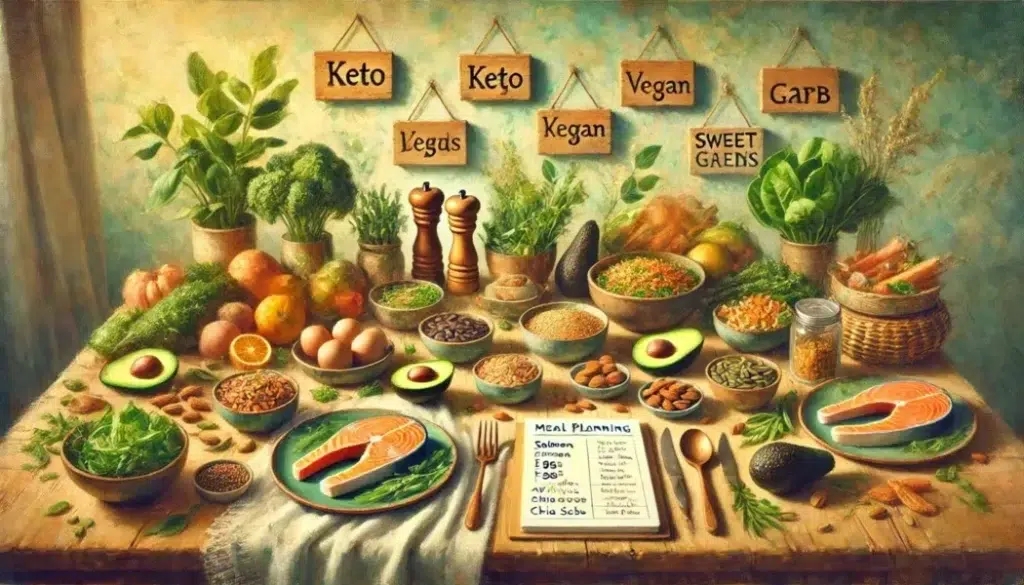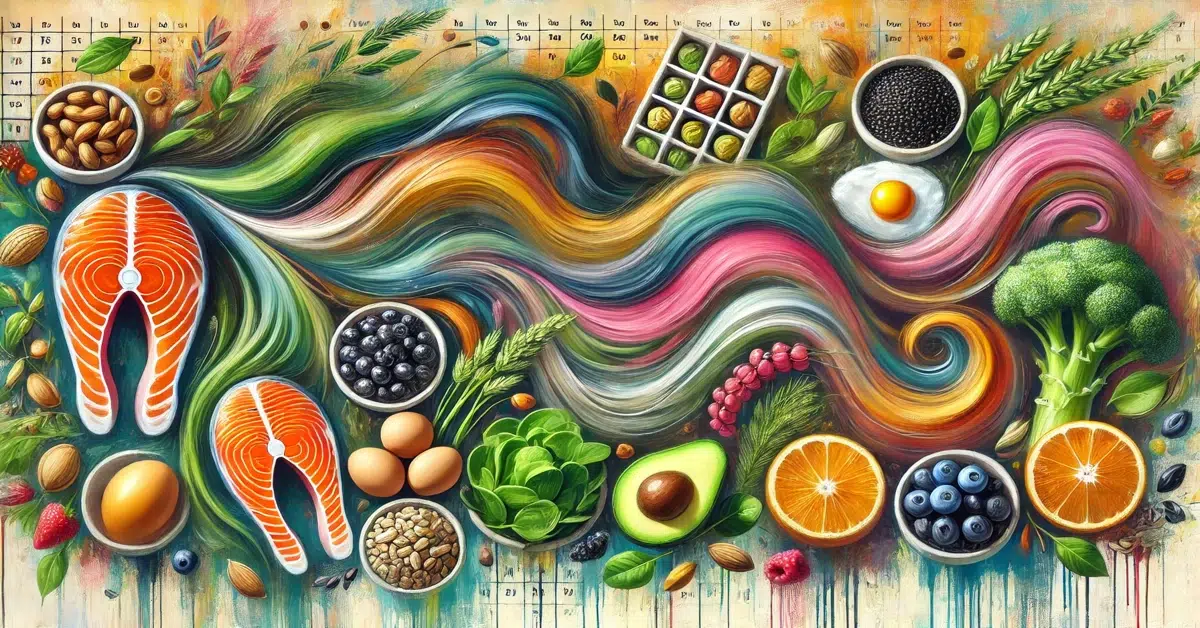A full and lively head of hair isn’t just about good luck. Many times, what you see up top reflects what’s going on inside your body. When I talk about healthy hair, I’m really talking nutrients. There’s a list of powerhouse nutrients that will do wonders for your follicles.
Biotin often takes the spotlight. It doesn’t get much more vital than this, boosting both your hair’s strength and growth. But hey, don’t overlook the supporting nutrients like zinc and iron. Zinc is like the follicle’s best friend, playing a key role in cell replication and protein synthesis, which are both necessary for those strands of hair to grow lush and strong. And iron? This mineral delivers oxygen to your hair roots, and trust me, those roots need to breathe.
Now, how do you get these nutrients onto your plate? Well, leafy greens like spinach are loaded with iron, and nuts and seeds offer a mix of zinc and vitamin E. Eggs are a biggie for biotin. If you’re more of a plant-based eater, don’t worry. There are solid vegetarian options, too. Lentils give you a good dose of iron, and almonds can cover your need for E and zinc.

It’s important to know what might be missing in your diet. Lack of vitamin D, for instance, often goes unnoticed but can significantly impact hair. Think about adding more fatty fish like salmon or grab that Vitamin D supplement if you need it.
Being proactive with nutrients is just smart. You’re not only giving your hair a fighting chance but also helping out the rest of your body. So next time you’re planning a meal, consider making your hair health a part of that conversation at the dinner table.
💊 Beyond Diet: Supplements and Their Role in Hair Care
Eating for hair health is key, but sometimes the right foods aren’t enough, and that’s where supplements come into play. It’s not just about grabbing any pill from the shelves, though. Knowing what your scalp and strands need is half the battle won.
Think of collagen supplements as a little extra love for your locks. They help with the elasticity and strength of your hair, basically giving it a bit of a pep talk. You might already have keratin in your hair, but supplementing can give it a boost, too. This is where those keratin supplements come in, infusing your hair with some of that shiny goodness.
Ever heard of adaptogens like ashwagandha? They’re pretty rad because they don’t just tackle stress — a big hair health enemy — but they also work on balancing the hormones that can mess with your mane.

But hey, before diving into the supplement pool, don’t forget to chat with your healthcare provider. Personalizing your supplement regimen is key since everyone’s bodily needs are a bit different, especially when it comes to nutritional deficiencies tied to hair. Just because a friend of a friend swears by a supplement doesn’t mean it’s your match made in heaven.
Not every hair care battle is won with diet and supplements alone. Sometimes, combining these with a bit of self-care routine magic — like scalp massages or the right kind of hair treatments — can work wonders. Supplements can complement the foods you’re eating, not replace them. Feeding your hair from the inside out isn’t a trend—it’s your new secret weapon. And with the right supplement in your corner, you’re not just playing defense—you’re taking the lead.
⚠️ Hidden Saboteurs: Stress, Hormones, and Diet Challenges
You’ve been eating all the right foods and even keeping a close watch on your supplement intake, but your hair still seems like it’s not budging. Well, here’s the scoop: stress and hormones can really hit the brakes hard on hair growth, sometimes making all your efforts feel like they’re going nowhere. Stress releases certain hormones like cortisol, which can send hair follicles into a resting phase, leading to thinning hair.
Hormonal changes, whether it’s the result of pregnancy, birth control pills, or menopause, can throw a wrench in the works too. These hormonal upheavals may lead to hair shedding. So it’s not just what you eat, but what’s going on inside your body that counts.
Notice any signs of deficiencies like dry, brittle hair or even some unexpected shedding? Those can be red flags pointing to a hormone or stress-related issue. Hormones greatly influence how your body absorbs vitamins and minerals, which directly affects hair health.

So, what can you do? When stress seems to be part of life, consider stress management techniques like mindfulness or yoga. They’re more than just buzzwords—they’re actually useful for calming the body’s stress responses. Balancing hormones naturally might seem tricky, but small steps like ensuring enough sleep, eating balanced meals, and perhaps taking specific herbal supplements can make a difference. Your mind might say “I’m fine,” but if your hair could talk, it might tell a different story.
Sometimes, it’s also about being kind to your strands, whether that means reducing heating tools or tying your hair less tightly. Remember, your body thrives on balance, not only of food but also in lifestyles and habits. Just like how you wouldn’t skip your veggies at dinner, don’t miss out on a little stressed-out self-care now and then.
💧 Hydration and Healthy Fats: Allies for Hair and Scalp
Water and healthy fats might just be the unsung heroes in the quest for strong hair. Keeping yourself well-hydrated is more than a good habit—it’s an essential part of ensuring your follicles stay happy and productive. Dehydration can make your scalp dry and itchy, which isn’t exactly the ideal environment for hair growth.
We need to talk about omega-3 fatty acids. These healthy fats, found in foods like chia seeds, walnuts, and fatty fish, support scalp health and are crucial for your hair’s overall well-being. Omega-3s work to fight inflammation, keep the scalp moisturized, and promote circulation for hair growth. Don’t shy away from adding these fats to your meals.
Besides dietary changes, incorporating hydration into your daily routine becomes crucial. Start your morning with a big glass of water, and remember it before every meal. Make it your go-to drink and you’ll likely notice a change not only in your hair but in your overall energy and skin health.

While we’re at it, consider avocados—a fantastic source of healthy fats that can be incorporated into many meals. Blend them into smoothies, or spread them on toast for breakfast. They’re your pal in fighting dry scalps and enhancing hair structure.
These dietary choices don’t have to be extravagant either. Simple swaps and smart hydration habits can work wonders over time. Small, consistent adjustments in your daily diet amplify your chances of enjoying a lush head of hair.
📅 Meal Planning Tips for Vibrant Hair: Tailoring Diets to Lifestyles
Thinking about tailoring your meal plan for vibrant hair? It’s all about adjusting to your personal lifestyle and dietary preferences. Whether you’re all about that keto life, staunchly vegan, or somewhere in between, there’s a path to follow for lush locks.
For those on ketogenic or low-carb diets, focus on foods rich in protein and healthy fats, which you’re likely already doing. Eggs and fish are great choices here. Vegans, on the other hand, might lean more on lentils, nuts, and seeds to fill nutritional gaps. Just remember, every diet can embrace foods like avocados and sweet potatoes to nurture hair health.
While crafting your meals, keep an eye on foods that might undo your hard work. Stick to whole foods and keep sugar and refined oils at arm’s length. Even that seemingly healthy salad from the store might pack hidden ingredients that can irritate your scalp or hinder hormonal balance. Not sure which foods might be quietly undermining your efforts? 👉 Here’s a full list of foods to avoid for healthier hair – trust me, your follicles will thank you.

Your evening meals can play a pivotal role, too. Consider light, nutritious options that encourage overnight hair regeneration. Foods high in magnesium, like almonds, can promote better sleep and, therefore, better overall scalp health.
Finally, make your meals part of a broader self-care ritual. Pair your nutrient-dense dishes with actions like scalp massages or using a nourishing conditioner. Also, if you’re using hair treatments like minoxidil, certain foods can enhance their effects. Meals rich in antioxidants can provide added benefits.
Fantastic hair days feel a whole lot closer with just a few mindful tweaks to your meal planning. Remember, it’s about integrating healthy habits seamlessly into your life. Over time, these efforts manifest visibly—not just in your hair, but in how you feel overall. Stronger hair doesn’t start in the mirror—it starts in your mindset, your meal plan, and the quiet choices you make every day. Little by little, strand by strand, you’re building something real.
Stay with us — the best is yet to come.
By following our advice, you’re doing the most you can for your hair.
Be the first to know when we publish new guides, tests, and proven strategies for stronger, healthier hair.
👉 Visit the About Me page to learn more about my journey, mission, and why helping people with hair health is so personal to me.
Want healthier, stronger hair? Discover 8 science-backed habits that protect your scalp and boost natural growth. Get your free PDF guide today!
Disclaimer: This article is for informational purposes only and is not a substitute for professional medical advice. Sensitive claims are supported with scientific references, and full product details can always be found on the official websites of the respective manufacturers or distributors.
Some links in this article are affiliate links. If you choose to make a purchase through them, I may earn a small commission at no extra cost to you — helping me keep HairGrowGenius running. Thank you for your support!

❓ FAQ: Hair Nutrition and Meal Planning
🥦 Which nutrients are most important for hair growth?
The key players are biotin, iron, zinc, vitamin D, protein, and omega-3 fatty acids. These nutrients support hair strength, growth, and scalp health.
🍽️ How quickly can a hair-friendly diet show results?
Hair growth takes time. You may start noticing improvements in texture and shedding within 2–3 months of consistent healthy eating.
🥚 Can protein deficiency cause hair thinning?
Yes. Hair is made mostly of keratin — a protein. A low-protein diet can lead to weak, brittle hair and increased shedding over time.
🥑 Do healthy fats really help with hair health?
Definitely. Omega-3s and other healthy fats help reduce scalp inflammation and support follicle function. Think: avocado, nuts, olive oil, and fatty fish.
🧾 Last updated: June 2025 based on nutritional science and trichology research.


Leave a Reply